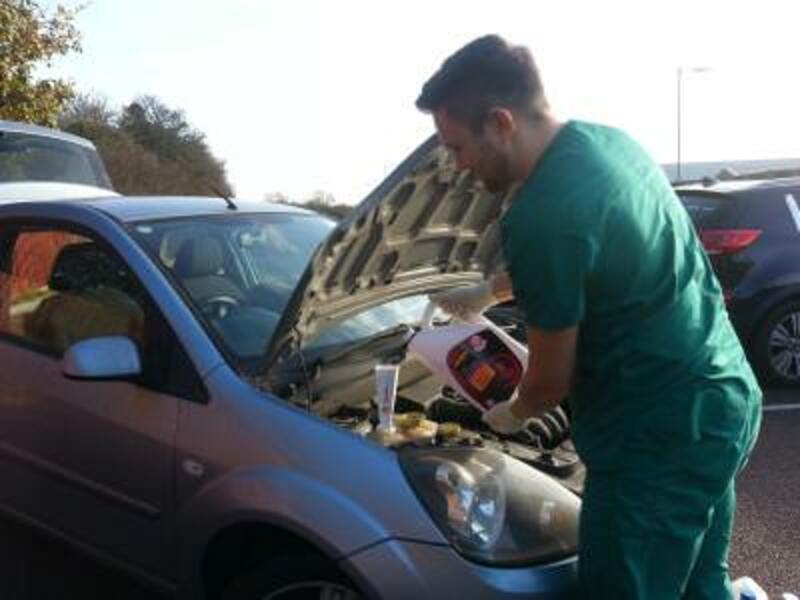Is Antifreeze really poisonous to cats?
Unfortunately the simple answer is yes and many people are unaware of the danger of fatal antifreeze poisoning in pets.
Commonly this occurs from accidental poisoning caused by spills or leaks, as well as leaking water coolant, from vehicles. The following explains the consequences, signs and some guidance on this subject to help avoidable deaths.
How do cats get poisoned?
Cats will lick antifreeze as it is thought to be sweet in taste, but they do this to their peril as it if not treated quickly will be fatal. The poison contains the highly toxic ethylene glycol. Even very small amounts can be fatal as it causes crystals to form in the kidneys leading to a very rapid onset of kidney failure. Treatment to reverse this kidney failure is likely to be ineffective, as once the kidneys are damaged they are unable to repair themselves.
How will you know if your cat has been poisoned?
If you suspect your cat could have come in contact with antifreeze, leaked water coolant or are showing any of the following signs it is important you take them to see a vet immediately.
The signs of poisoning can start to develop very quickly, as little as 30 minutes after ingestion. By this time the cat's central nervous system is being affected by the poison.
Over the next 12 - 24 hours the cat will deteriorate further. The heart and lungs (cardiopulmonary system) become affected and the cat goes into shock. The kidneys take the full brunt of the poison and become swollen, very painful and cease to function normally
You will notice either some or all of the following:
- Vomiting
- Ataxia or wobbling / appearing drunk when they try to move
- Increase in heart rate (a cat's heart rate should be around 140-240 beats a minute)
- Rapid breathing (normally this should be in the region of
- General weakness
- Increased urination
- Hypothermia
- Becoming dehydrated
- Anorexia
- Oral Ulcers
- Severe depression
- Coma and convulsions
The sooner you take your cat to your vet the better as it increases their chances of survival, this should be treated as an emergency. Without immediate treatment their pain, suffering and distress will ultimately cause death.
Can antifreeze poisoning be treated?
If treated in the early stages an antidote can be given alongside very intensive veterinary care. The aim is to prevent the absorption of the antifreeze and the resulting toxics that develop. Intensive fluid therapy is required with the aim of maintaining as much of the undamaged parts to the kidney as possible. If treated too late the antidote and this supportive care will not be enough to safe the cat.
How do you keep your pet safe?
- Regularly check your car to ensure it isn’t leaking water coolant
- Take care storing, using and disposing of antifreeze and water coolant
- Always keep antifreeze in clearly labelled, robust, sealed container, away from pets and their environment
- Clean up spills immediately, no matter how small and ensure pets cannot access the area until it’s clean and safe
- Always dispose of antifreeze and water coolant safely and responsibly, (you can contact the local authority for further advice on this.)
Cats Protection reported that nearly 1,200 cats have suffered fatal antifreeze poising since November 2012, alarmingly this equates to 50 cats a month across the country. We have had our fair share of antifreeze poisoning cases to treat ourselves at Millennium and it is heart breaking for us and our clients, especially as this is preventable.
The government is being lobbied to add a bitterant substance to all antifreeze products containing ethylene glycol. This bitterant (Bitrex) is thought to be enough to deter cats from drinking the usually sweet antifreeze product. Some are already using Bitrex as a precaution to accidental ingestion in humans but we can't confirm that the levels added are sufficient to deter cats.

